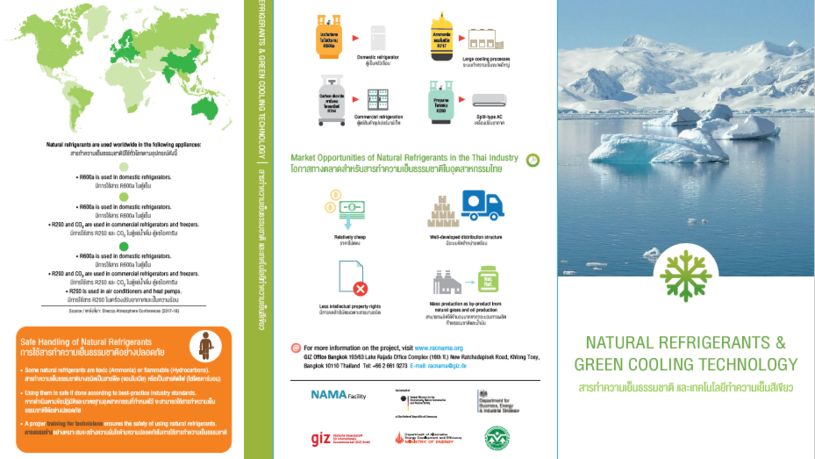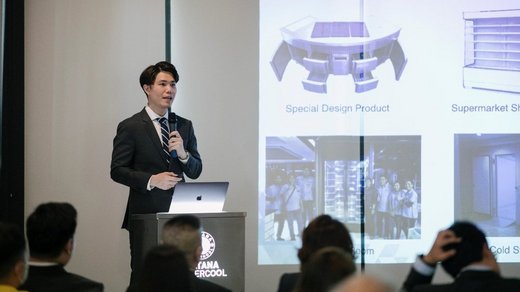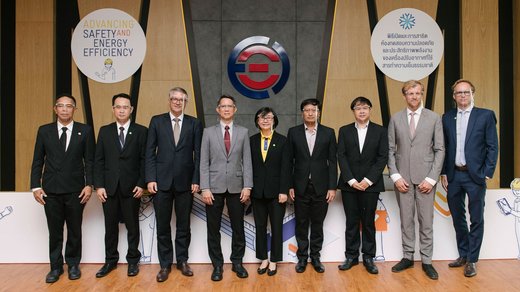From ultra-low GWP to high energy efficiency: Green Cooling technologies bring multiple benefits. This brochure explains why the transition to natural refrigerants is both necessary and urgent.
RAC NAMA Thailand
The project promotes climate-friendly and energy-efficient cooling technologies in Thailand, with a special focus on domestic refrigerators, commercial refrigerators, air-conditioners, and chillers. Its first phase ended in July 2021.
Map with partner countries
Partner Countries
Nowadays, the use of refrigeration and air-conditioning (RAC) technologies accounts for approximately 50% of the electricity consumed in Thailand. Without effective intervention, the growing energy demand for cooling is projected to double by 2030. As the RAC sector is also one of the country’s largest greenhouse gases (GHG) emitters, reducing emissions from this sector will be key to help Thailand achieve its ambitious GHG mitigation targets of 20-25% by 2030.
At the same time, Thailand is an important industrial hub in the global RAC sector. To remain competitive, producers need to be well prepared to adjust to the changing requirements driven by international agreements. Consequently, their challenge will be to produce highly energy-efficient and climate-friendly technologies.
Facts RAC Thailand

Text
RAC NAMA Thailand wants to reach the following goals:
- Thailand receives support to achieve its energy saving and greenhouse gases mitigation targets.
- Companies that produce refrigerators and air-conditioners stay competitive against imports. They improve the energy efficiency of their products and get to know new technologies.
- Technicians learn important new skills that prepare them for the future.
- Consumers have a wider choice of energy-efficient products and can save money on their electricity bills.
Bildergalerie
This video is being blocked because of your cookie settings.
The project is commissioned by the NAMA Facility on behalf of the German Ministry for the Environment, Nature Conservation, and Nuclear Safety (opens in a new window) and the UK’s Department for Business, Energy & Industrial Strategy (opens in a new window) and implemented by GIZ with support from the Electricity Generating Authority of Thailand (opens in a new window) (EGAT), Department of Alternative Energy Development and Efficiency (opens in a new window) (DEDE) and Office of Natural Resources and Environmental Policy and Planning (opens in a new window)(ONEP).




